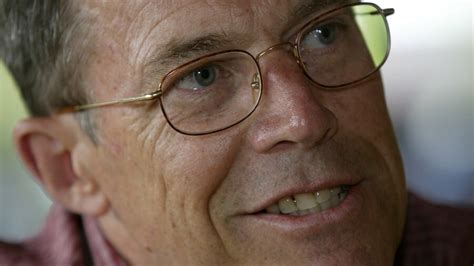A Quote by Dale Jamieson
I think when it comes to climate change, the single most important thing in the world is for the United States' Congress to pass an effective bill that will put a price in carbon because if it starts costing something to emit carbon, this will provide an incentive, people do act on the basis to some extent of economic incentives to emit fewer greenhouse gases.
Quote Topics
Act
Basis
Because
Bill
Carbon
Change
Climate
Climate Change
Congress
Economic
Effective
Extent
Fewer
Gases
Greenhouse
Greenhouse Gases
Important
Important Thing
Incentive
Incentives
Most
Most Important Thing
Pass
People
Price
Provide
Put
Single
Some
Something
Starts
States
Thing
Think
United
United States
Will
World
Related Quotes
I think that once people understand the great risks that climate change poses, they will naturally want to choose products and services that cause little or no emissions of greenhouse gases, which means 'low-carbon consumption.' This will apply across the board, including electricity, heating, transport and food.
We need to use economic instruments such as carbon taxes, cap and trade, tax and dividend and whatever else to help incentivize behavior that will move us to a post-carbon, post-animal agriculture world, and make our societies more resilient to the shocks that are already baked into the system. But that doesn't make climate change an "economic issue."
Absolutely love the new campaign from the Optimum Population Trust: do your bit for addressing climate change by having fewer children - or even no children. The lifetime CO2 emissions of a UK citizen amount to 750 tonnes (the equivalent - apparently - of 620 return flights between London and New York), so the extra 10 million by which our population will rise between now and 2074 will, over their lifetimes, emit around 7½ billion tonnes of CO2..."births averted" is probably the most single most substantial and cost-effective intervention that governments could be using
We now know that climate action does not require economic sacrifice. This is fully in line with the World Bank Group's findings. It is up to all of us to make smart policy choices that will help combat climate change. For example, putting a price on carbon is a necessary step and could drive resources and investments to a cleaner economy.
The models that have been constructed agree that when, as has been predicted, the level of carbon dioxide or its equivalent in other greenhouse gases doubles from pre-Industrial Revolution concentrations, the global average temperature will increase, and that the increase will be 1.5 to 4.5 degrees Celsius or 3 to 8 degrees Fahrenheit... In Dallas, for instance, a doubled level of carbon dioxide and other gases like methane, would increase the number of days a year with temperatures above 100 degrees from 19 to 78 each year.
































